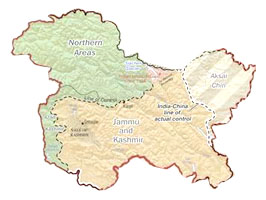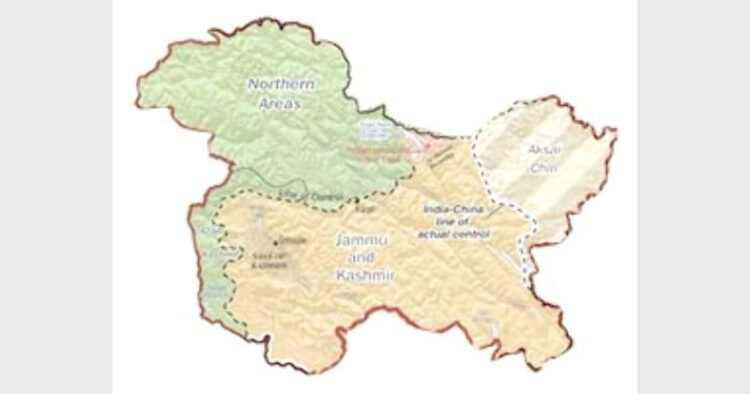Jaibans Singh
 India, the largest democracy in the world, is gearing up for the 2014 Lok Sabha elections; a poll schedule of nine phases has been announced from April 7 to May 12 with the final counting on May 16. Elections in India normally have an aura of festivity around them; lots of drums, banners, mud-slinging, corny politics and fantastic promises mark the proceedings. This time round, the campaigning is particularly energetic and on some occasions, sadly acrimonious. The beauty is that, after all this, a government will invariably be elected and in case the ruling dispensation is defeated an extraordinarily smooth transition of power will take place. Such is the resilience of Democracy in India.
India, the largest democracy in the world, is gearing up for the 2014 Lok Sabha elections; a poll schedule of nine phases has been announced from April 7 to May 12 with the final counting on May 16. Elections in India normally have an aura of festivity around them; lots of drums, banners, mud-slinging, corny politics and fantastic promises mark the proceedings. This time round, the campaigning is particularly energetic and on some occasions, sadly acrimonious. The beauty is that, after all this, a government will invariably be elected and in case the ruling dispensation is defeated an extraordinarily smooth transition of power will take place. Such is the resilience of Democracy in India.
In Jammu & Kashmir, especially in the Kashmir region, the drama that unfolds during elections has a twist to it because there exists, in this region, a determined inimical segment of leadership whose sole intention is to deny to the people the fruits of Democracy, freedom and progress. In this evil design the segment has unrelenting support from inimical forces from across the border. In the present instance, elections in Jammu & Kashmir will gain even more importance since they will be a precursor for the state legislative Assembly elections to be held later in the year.
It may be recalled that the unprecedented success of elections held in the state in 2008 and 2009, despite strong resistance by a segment of the leadership, came as a complete surprise for political pundits and Kashmir watchers. The people exhibited a clear mandate for the democratic process and came out in large numbers to exercise their franchise..
The circumstances during the forthcoming polls are not likely to be different from what has been witnessed on earlier occasions. The separatists will give a boycott call with Syed Ali Shah Geelani in the forefront; others will be a step behind, testing the waters before taking the plunge. Further, separatist groups are bound to launch an anti-security forces campaign.
Pakistan based anti-Kashmir terrorist organisations like the Lashkar-e-Toiba and Jaish-e-Mohammad are already making intensive plans to disrupt the poll process. Terrorist leaders like Hafiz Saeed and Maulana Masood Azar are already on the streets exhorting their cadre to put in all they have to “destroy India”. The increased activity will be aimed at boosting the sagging morale of the terrorist cadre operating in the valley.
This apart, a concerted drive will be launched to discredit the security forces with accusations of human rights violations, disruption of public demonstrations and stringent calls for demilitarisation. Terrorists will try to strike at the morale of the security forces and create a wedge between them and the government.
It is quite evident that elections in J&K will have to be conducted with utmost caution, maturity and vigilance to counter the forces that are working towards their failure. The Election Commission will need to be bold and confident. On earlier occasion the Election commission has shown exemplary determination. If it could conduct election under the challenging circumstances post the Shri Amarnath agitations in 2008 surely the present circumstances should not pose an insurmountable problem; the idea is to remain steadly fast despite all provocations.
The security forces have achieved complete domination of the counter terrorist environment. These gains will definitely give adequate confidence to the common man to vote in large numbers.
Apart from enhancing its domination of the security environment the army should now work towards strengthening the already strong bond that it enjoys with the people. Also, the need for proactive operations and relentless vigilance on the LoC, the international border and the interiors cannot be over-emphasised. The security process should be carried out with the support and active participation of the people.
Credible steps need to be taken to ensure that false propaganda is not allowed to gain footage. The misconceptions, rumours etc that inimical forces will try to spread as a part of their propaganda campaign can be effectively countered by the media by giving out the correct picture. By presenting the situation in the right perspective and in a timely manner the media can negate the forces aligned against the nation.
Political leaders should also restrain themselves from making sweeping statements that can harm the poll process. While there is no reason to be overly worried about conduct of polls in J&K, there is definitely a need to put in the extra effort that this sensitive region demands. Some caution, extra security vigilance, close contact with the people and responsible behaviour will ensure a resounding success.
Time to remember our forgotten children
K G Suresh
A story goes thatcenturies back about two women who once approached King Solomon, both claiming that an abandoned child belonged to them. In those days when the DNA test was not in prevalence, the wise monarch suggested that the child be cut into two and given away to both. One woman agreed and the other said she is willing to give up her claim but would not allow the baby to be harmed in any manner. And it did not take even a fraction of second for the King to decide who the real mother was.
One is often reminded of this story when some self-proclaimed peaceniks (only on the Indian side) talk about accepting the LoC as a permanent solution to the so-called Kashmir dispute.
Unlike in Pakistan, where alleged human Rights violations and so-called excercises by the security forces in ‘Indian controlled’ Jammu & Kashmir dominate the political and nationalist discourse, our discussions have narrowed down to the support to militancy in J&K from across the border. It is as if the political leadership and intelligentsia of this country has accepted the de facto status of J&K and the Line of Control as de jure.
This is despite the fact that on February 22, 1994, both the Houses of the Parliament of India unanimously passed a resolution asking Pakistan to “vacate the areas of the Indian state of J&K, which they have occupied through aggression”.
In an unprecedented move, the resolution also expressed “regret and concern at the pitiable conditions and violations of Human Rights and denial of democratic freedoms of the people in those areas of the Indian state of J&K, which are under the illegal occupation of Pakistan.”
Thus, India has been reiterating time and again that Pakistan Occupied Kashmir including Northern Areas/Gilgit-Baltistan is an integral part of its territory and the people of PoK are constitutionally and legally the citizens of India.
The total area under illegal occupation of Pakistan and China in J&K is 120799 sq km while India is left with just 101437 sq kms.
In January 2010, the International Council of J&K National Awami Party leaders demanded that Pakistani state must pull out its troops from populated areas of PoK forthwith.
A delegation from PoK which visited the Institute of Defense Studies five years back expressed fears that the Sunni majority Pakistan may exterminate the Shia majority in Gilgit-Baltistan to silence all opposition to their policies.
Ironically, such reports, involving the lives of people from PoK, northern areas and Gilgit-Baltistan, which India claims to be an integral part of its sovereign territory are published on the ‘International’ page of our leading news papers. Of course, many others don’t bother to publish them at all.
In the words of Senge Hasnan Sering, who heads the Institute of Gilgit-Baltistan Studies (IGBS) in Washington, “Pakistan just exploits our resources and wants to continue with its political hegemony. It has given us a pseudo provincial status but all our matters are decided by Gilgit-Baltistan Council that is controlled by the Pakistan establishment.”
Speaking about Chinese intervention in the region, Khan says, “Chinese companies are doing a lot of work in PoK. It needs to be taken seriously as it has its impact on the changing power politics in the region.”
Unfortunately, India has chosen to remain a silent spectator to these atrocities and protests. Charging New Delhi with having the memory of a goldfish which lasts only seven seconds, these activists want New Delhi to insist on Pakistan to resume traffic and trade across the Line of Control to benefit the people of Gilgit-Baltistan.
Long back, the ‘Gypsies’ were described as the ‘Forgotten Children of India’. Let not our people in these occupied territories ever fall into the category.













Comments